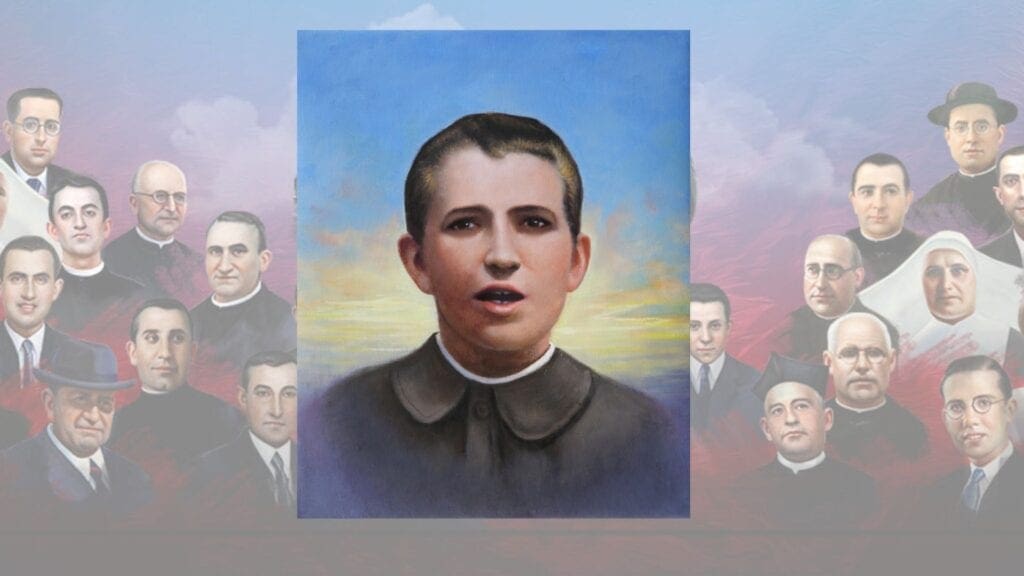With regard to the establishment of the Congregation of the Mission, Vincent de Paul was very clear that the work was inspired by God primarily for service on behalf of the Church and the poor. Therefore, this “Little Company” had to move out beyond the boarders of France and extend itself to the ends of the earth … and should do so until the end of time.
So that Vincent’s his sons and daughters might be true children of God, they must be enflamed with apostolic zeal and living and ministering with great gentleness, simplicity and humility. Zeal would be of no value if it were accompanied with ill-temper, pride, arrogance, and/or power over others. Wisely, Vincent has given us, as a heritage, the five characteristic missionary virtues which are the five smooth stones with which … we will defeat Goliath from hell (Common Rules XII:12). Vincent stated: The Congregation should pay special attention to developing and living up to these five virtues so that they may be, as it were, the faculties of the soul of the whole Congregation, and that everything each one of us does may always be inspired by them (Common Rules II:14).
We are going to attempt to discover the significance of those virtues and examine some of the ways in which we can adapt these virtues to today’s reality. From the perspective of the culture of vocations we will further explain each of these virtues by examining the way in which one of the members of the Congregation of the Mission led a life that was characterized by said virtue.
Simplicity
Vincent de Paul opened his heart and stated: simplicity is the virtue I love the most. Furthermore, he affirmed that simplicity was life-giving when he affirmed: simplicity is my gospel (CCD:IX:476). Then, Vincent defined simplicity when he noted that simplicity consists of saying things as they are (CCD:XII:144).
In today’s world, we recognize and identify simplicity as truthfulness, sincerity, transparency. Therefore, our life is authentic and freed from double agendas when our yes is yes and our no is no. The practice of simplicity enables us to free ourselves from inauthenticity, that is, to say one thing and to mean another … simplicity enables us to be clear and transparent, like the clear water that flows down the mountainside. In our common life and ministry, simplicity means that we will not say one thing to a confreres’ face and then say something different behind that confreres’ back. Confreres are to trust one another and not hide things from one another.
Blessed Brother Vicente Cecilia Gallardo, CM (1914-1936)
Brother was born in Cabra, Córdoba, Spain on September 10, 1914. He received an excellent Christian formation in his home and with the Daughters of Charity. Those who knew him affirmed that he was a good man, very devout, willing to serve others, candid, no malice within him, devoted to the Blessed Mother and possessing an apostolic spirit (he taught children to pray the Stations of the Cross and encouraged them to pause and visit the Blessed Mother in their parish church).
He entered the Congregation on February 16, 1939. When the religious persecution broke out, his superiors told him to return to his home. He put a crucifix and a cassock in his suitcase and those articles identified him as a missionary … and for that reason he was martyred on July 21, 1936 in Canillas, Madrid.
Like Nathaniel (John 1:45-50), Brother Vicente was a man of God … there was no deceit or malice in him. He was transparent before God and before his brothers and sisters. He was not two-faced: when confronting his persecutors, he was true to himself (he did not lie and was not ashamed of his vocation as a member of the Congregation of the Mission; he was willing to shed his blood for the love of Christ).
By: Marlio Nasayó Liévano, CM
Province of Colombia
Translated:
Charles T. Plock, CM
Eastern Province, USA


